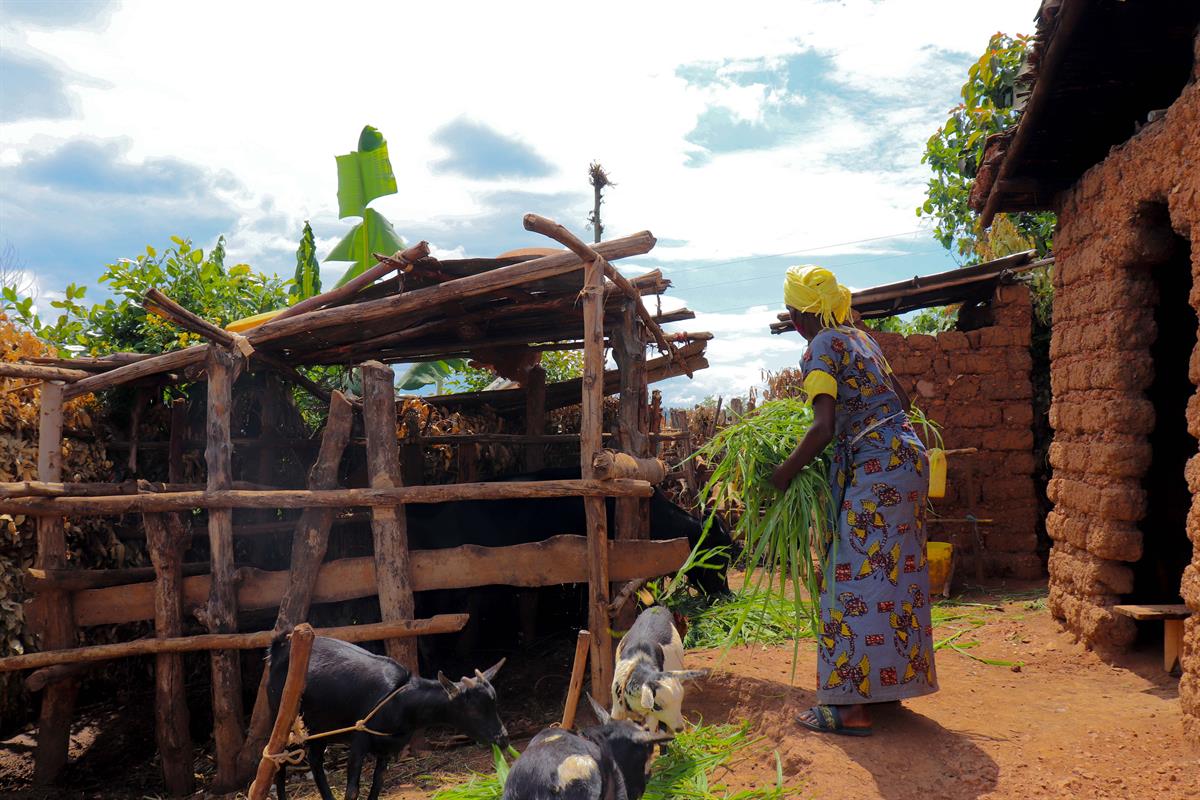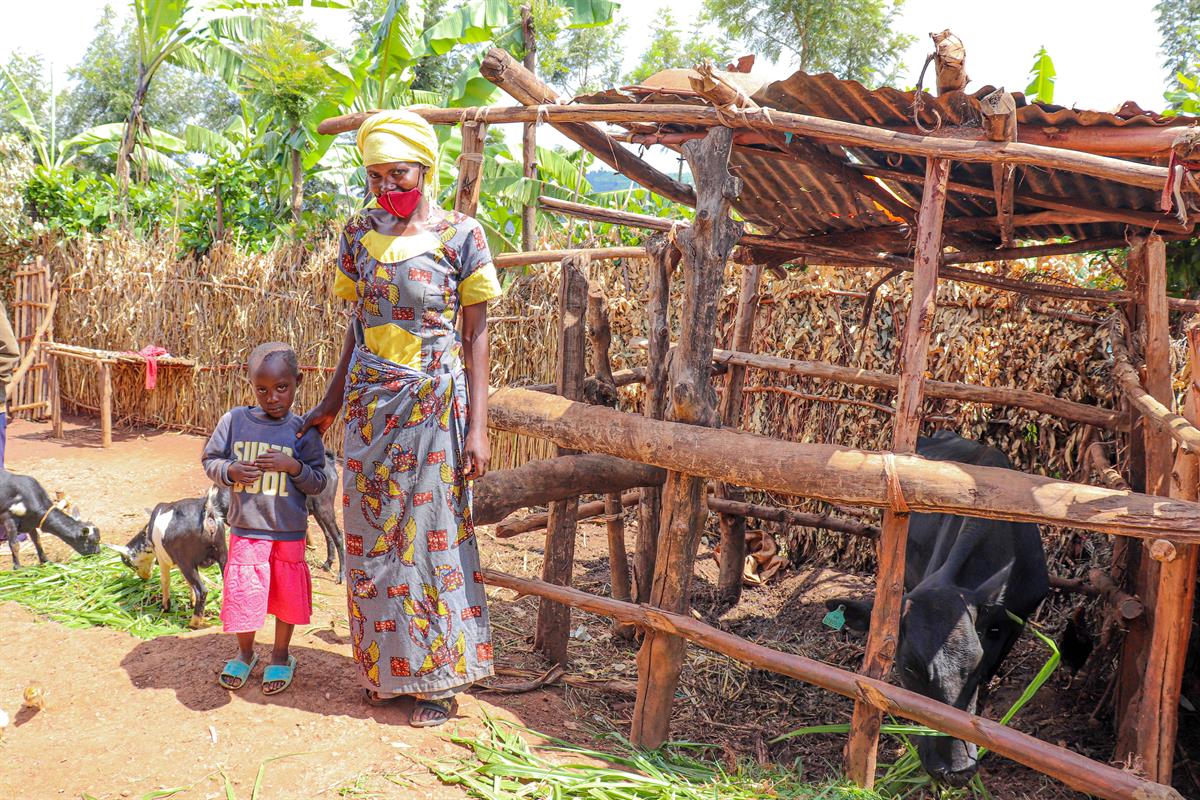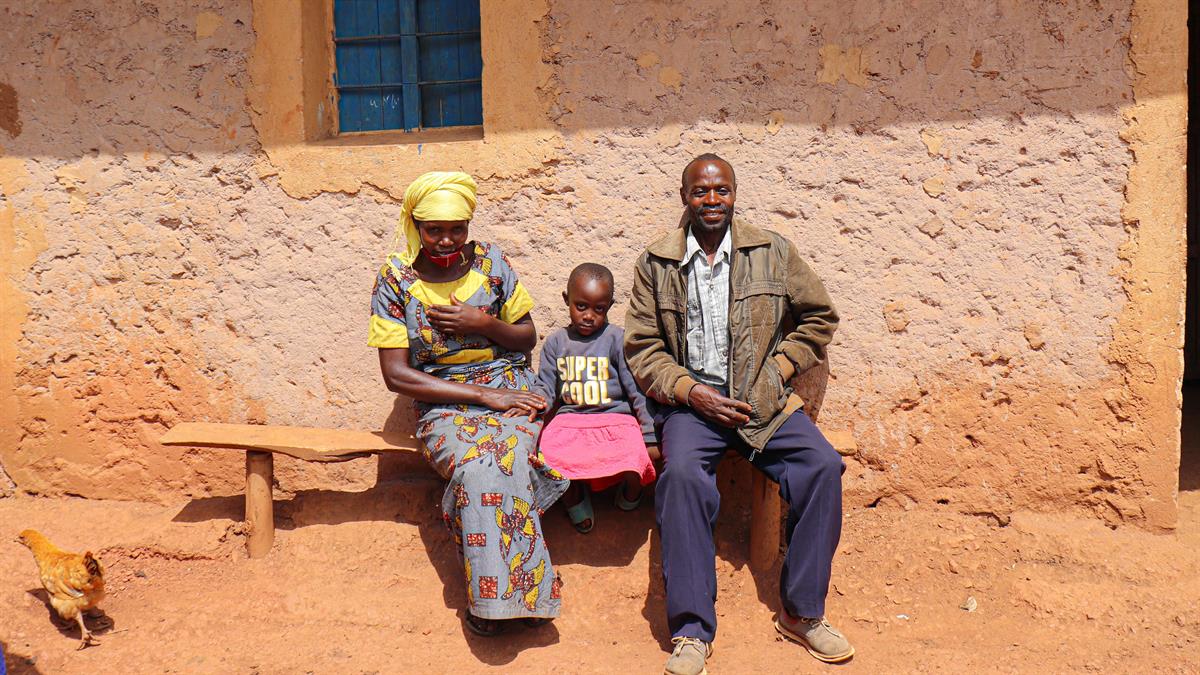AVSI Rwanda supports the families who are most in need in the rural areas of the country.
Reaching this segment of the population means getting into the heart of the villages and embarking on a path of collective growth at community level.
This is possible through the PACOME approach (French acronym for "PArents, COMmunauté, Écoles": parents, community, schools), which starts with the Distance Support project dedicated to vulnerable children.
It then focuses on families - with the goal of making them self-sufficient - and finally, it works with the community, creating a safe and healthy environment where both children and families can continue to grow.
Among the 1506 children supported at a distance in the country is Anitha, who has been sponsored since 2018.
At the time, the parents were unable to meet the basic needs of their two children.
The father, after a bicycle accident, was suffering from mental issues and was no longer able to take care of the family, who could not afford the medicines to treat him. The entire family had been marginalized by the community, due to the stigma still attached to mental health problems.
It was Anitha who asked for AVSI's help, having heard about the Distance Support program in the village.
In a few months the girl started to attend school consistently and her father received the support he needed through the listening groups organized by AVSI within the CARE project.

But that's not all: Anitha's mother joined a savings and credit group (SILC) organized in the village, which allowed her to start accumulating and investing small amounts in new activities. By then participating in training courses on food safety and agricultural techniques, she began to grow fruits, vegetables and received animals to rear.
In addition, thanks to a course on financial management, she joined a self-help group for vulnerable women: today, all together, they create basketry accessories and manage a small market.
Anitha is no different: in addition to attending school with excellent results, she has become the president of the children's savings group, made up of 30 young people. So far they have managed to save a total of 257,000 RWF (about 218 euros) to invest in their studies.
All family members have become more active in the community, particularly in raising awareness about mental health issues.


The different types of support
The PACOME approach includes several actions:
- At the educational level, the family receives the means to pay tuition and the children the necessary school supplies.
- At the economic level, savings groups are created to help families reestablish or begin their own income-generating activities.
- At the psychosocial level, beneficiaries with special needs (single mothers, children and people with mental health problems) receive the necessary support.
- At the training level, both direct and indirect beneficiaries have access to training courses and awareness-raising activities dealing with food security, nutrition, positive parenting, savings, and many other themes.
To accompany the families during the course of the projects, periodic follow-ups are also carried out thanks to the collaboration of 82 community volunteers in the districts of Gatsibo, Giciumbi, Kamonyi, Nyanza and Ruhango. The relationship that results from them is a fundamental value for the families and helps them in their journey of development.